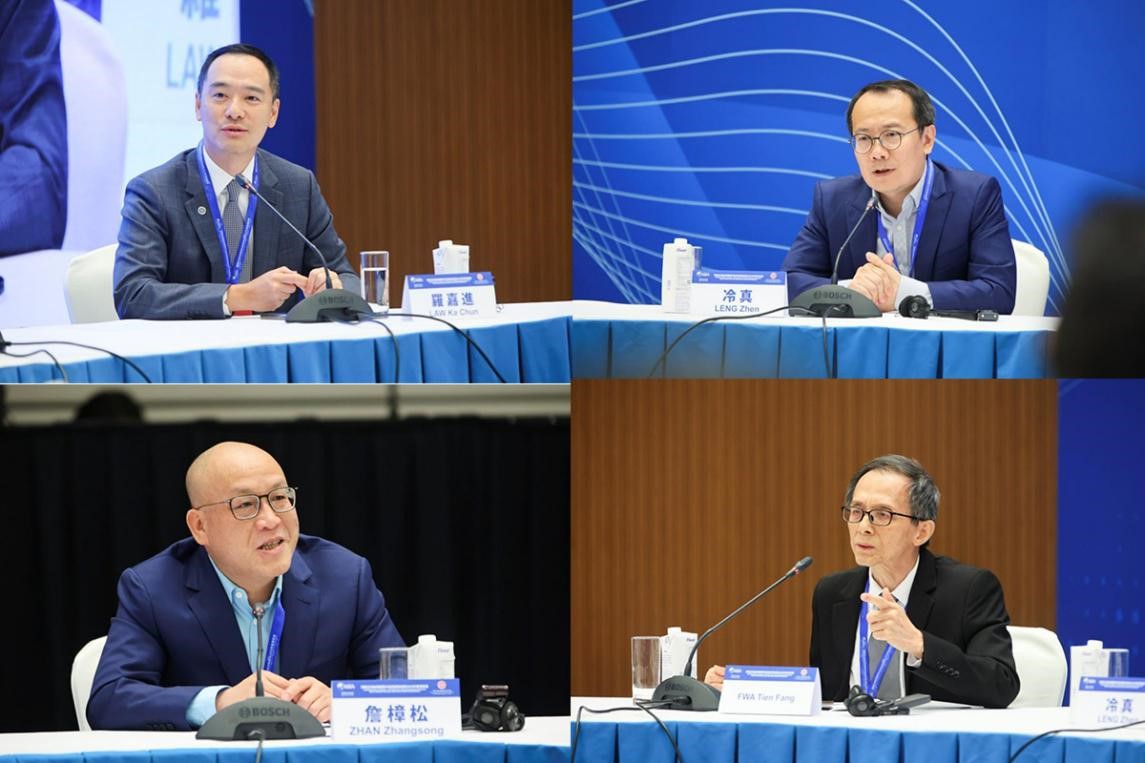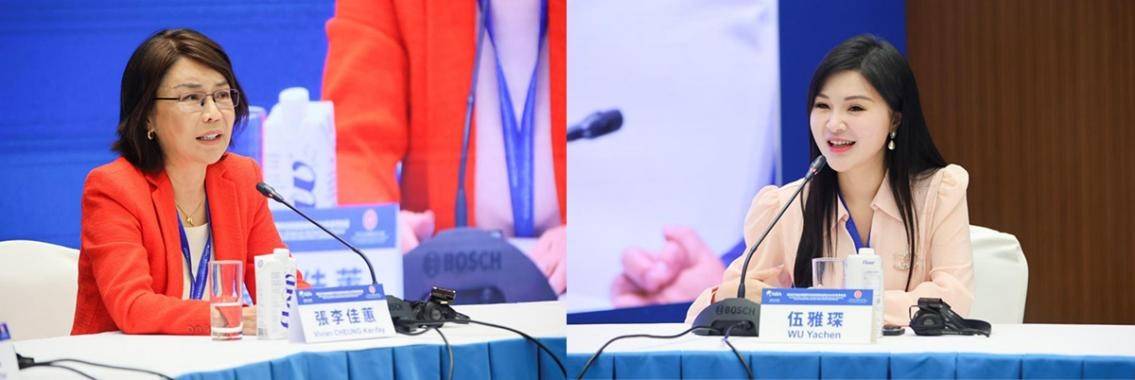On June 6-7, 2025, International Science, Technology & Innovation Forum of Boao Forum for Asia 2025 Hong Kong Conference, jointly organized by Boao Forum for Asia(BFA) and the Hong Kong Special Administrative Region Government, was grandly held at the Hong Kong Convention and Exhibition Centre. With the Hong Kong Trade Development Council as strategic partner, the event received strong support from the Hong Kong University of Science and Technology, Macau University of Science and Technology, South China University of Technology, The Chinese General Chamber of Commerce Hong Kong, and The Y.Elites Association. Roadway Tech served as industry partner.

Centered on the theme "Transitioning Towards the Future: Powered by Science, Technology and Innovation", the Conference delved into cutting-edge topics including quantum computing, life sciences, innovation clusters, global tech governance, AI industrialization, future mobility, and green technologies for sustainable development. Over 800 participants—government officials, international organization representatives, entrepreneurs, and scholars from 20+ countries and regions—gathered in this "Pearl of the Orient" to explore new frameworks for global tech governance and emerging technological trends.
On the afternoon of June 7, the Conference successfully held a session of "Mobility in the Future". FWA Tien Fang, Fellow of Academy of Engineering Singapore and an emeritus professor at the National University of Singapore (NUS), Leng Zhen, Associate Director of the Research Centre for Resources Engineering towards Carbon Neutrality at The Hong Kong Polytechnic University. Vivian CHEUNG Kar-fay, CEO of Airport Authority Hong Kong, LAW Ka Chun, Managing Director, CLP Power Hong Kong, WU Yachen, Vice-President of EHang Intelligent Equipment (Guangzhou) Co., Ltd, ZHAN Zhangsong, General Manager of Changan Prospective Technology R&D Institute, Executive Deputy Director of the State Key Laboratory of Intelligent Vehicle Safety Technology attended as guest speakers. The session was moderated by Yu Jiangmiao, Associate Dean at the School of Civil Engineering and Transportation, South China University of Technology (SCUT)., presided over the discussion.
Against the backdrop of technological advancements reshaping the transportation landscape, panelists discussed the technological implementation path of digital transformation of intelligent transportation system, the core role of smart roads in smart mobility system, the main challenges and development opportunities faced by the transportation industry in the current transformation process, how to achieve coordinated development between low altitude economy and ground transportation systems, the impact of the trend towards service-oriented transportation on urban spatial patterns, and the technological competition behind the transformation of automotive forms.

Panelists highly affirmed that building a safe, intelligent, and green transportation system is the future trend of transportation development. Fwa Tien Fang stated that the intelligentization of transportation systems is an irreversible trend, and the ultimate goal of intelligent vehicles is to achieve safe and reliable autonomous driving. The key to achieving intelligent driving lies in promoting the coordinated development of human-vehicle-road. Leng Zhen pointed out that future road development will focus more on green and low-carbon directions, and green road construction can be promoted from three aspects: first, promoting the recycling of solid waste materials, integrating waste tires, plastics and other polymer materials into road surfaces to enhance road performance; The second is to promote low-energy construction technologies, such as warm mixing and cold mixing asphalt technologies, to reduce the construction temperature of asphalt pavement while ensuring project quality; The third is to develop new materials that are more durable than traditional asphalt and concrete, in order to extend the service life of roads and achieve sustainable development. Vivian CHEUNG Kar-fay stated that Hong Kong Airport is currently constructing the first and largest autonomous driving transportation system in Hong Kong. The airport has already implemented the application of autonomous driving for cargo and passenger vehicles within the restricted area, and plans to achieve full autonomous driving on the apron within 5 years, as well as promote the integration of non-restricted area autonomous vehicles with external transportation.

Panelists pointed out that while the transportation system is developing rapidly, it is facing the challenge of how to coordinate technological innovation and policy guidance. Zhan Zhangsong believed that in the process of intelligent development of automobiles, there are challenges such as vague definition of data sovereignty, insufficient protection of user privacy and security, and lack of standards for determining responsibility for intelligent assisted driving accidents. He emphasized that it is necessary to establish a cross departmental collaborative governance mechanism through top-level design at the national level in order to effectively promote the resolution of these key issues. Wu Yachen stated that the existing policy system is difficult to match the rapid development of low altitude economy and technology, and it is urgent to establish a safe low altitude airspace hierarchical management system, further optimize the allocation of low altitude airspace resources, and stimulate the innovation vitality of low altitude economy. LAW Ka Chun proposed that the green energy system is deeply related to the transportation system. In the context of promoting carbon neutrality goals, Hong Kong's transportation energy transformation needs to focus on three aspects: strengthening cross-border research and planning coordination in the transportation sector; improving laws, regulations, and regulatory frameworks to meet the needs of new technological development; carrying out industry training and education to enhance the adaptability of practitioners to new products and services in the power system, in order to promote the green transformation process of transportation and energy.
During the audience interaction session, the attendees engaged in in-depth discussions with the audience on topics such as mutual recognition of cross-border transportation standards, the integrated development of vehicle-road-cloud systems, and the synergy between technology and policy.
The forum concluded with consensus on the necessity of cross-sector collaboration among road, automotive, aviation and energy stakeholders to address future mobility challenges and opportunities.
Yu Jiangmiao summarized that the innovative development of the future transportation system requires a deep collaborative mechanism between the government, industry, universities, and research institutions. Through the dual drive of technological innovation and institutional innovation, we will accelerate the construction of a new generation of technical standard system, continuously improve the long-term mechanism for promoting high-quality and sustainable development of future mobility, provide core support for the upgrading of transportation in the Guangdong-Hong Kong-Macao Greater Bay Area, and contribute innovative power to global transportation reform.